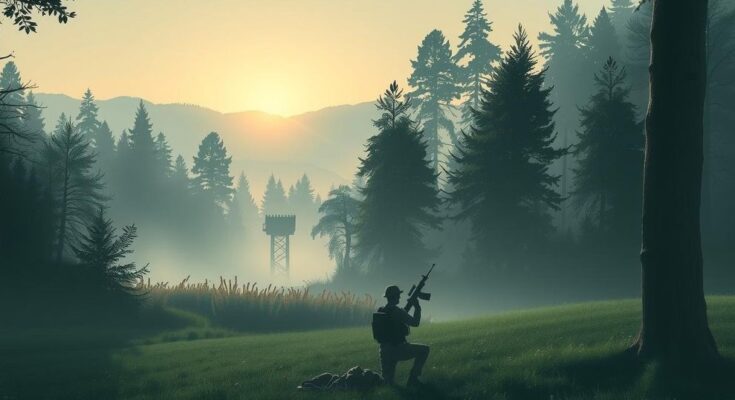At least 13 foreign peacekeepers have been killed in clashes in the Democratic Republic of Congo (DRC) involving M23 rebels. The DRC has severed diplomatic ties with Rwanda, accusing it of supporting the rebellion. Recent military engagements illustrate deepening unrest, raising concerns over humanitarian impacts in a region already plagued by instability.
On January 26, 2025, at least 13 peacekeepers were killed in the Democratic Republic of Congo (DRC) during clashes with the M23 rebel group according to United Nations representatives. The M23 has made significant advances, particularly surrounding Goma, a city with two million residents critical for security and humanitarian missions. This group, largely comprised of ethnic Tutsis, emerged after disaffiliating from the Congolese military more than a decade ago.
The DRC has accused Rwanda of supporting the M23 rebellion, prompting it to sever diplomatic relations with the neighboring country. Rwanda has rejected these allegations but acknowledged its military presence in eastern Congo, citing security concerns from the Congolese military buildup along the border. A Congolese military source stated, “Rwanda is trying to get in by all means, but we are holding firm.”
In light of the escalating violence, DRC officials have instructed the withdrawal of diplomats from Rwanda and called for an end to Rwandan diplomatic activities in Kinshasa. A UN Security Council meeting, originally planned for a later date, was advanced to address the situation following the death of a Congolese military governor during clashes.
The DRC military has reportedly thwarted an M23 advance towards Goma with assistance from allied forces, including UN peacekeepers and soldiers from the Southern African Development Community Mission (SAMIDRC). Recent fighting resulted in the deaths of nine South African peacekeepers, alongside casualties from Malawi and Uruguay, as confirmed by UN officials.
Long-standing conflicts in eastern DRC, fueled by disputes over land and resources among over 100 armed groups, have led to extensive humanitarian crises, with hundreds of thousands deceased and over seven million displaced. The UN peacekeeping force, which has been active for over twenty years, deploys approximately 14,000 personnel, often recognized by their blue helmets, symbolizing their peacekeeping role.
The ongoing conflict in the DRC, particularly in its eastern regions, has a rich but tragic history of unrest driven by rival factions competing for control over valuable natural resources. In addition to the M23, numerous other armed groups, such as the Cooperative for the Development of the Congo (CODECO) and the Allied Democratic Forces (ADF), exacerbate this volatile environment. The humanitarian fallout is severe, resulting in mass displacements and widespread suffering. Diplomatic tensions between the DRC and its neighbor Rwanda have persisted, fueled by accusations of external interference in internal affairs, complicating peacekeeping efforts and regional stability.
The recent deaths of peacekeepers in the DRC underscore the perilous conditions faced by those tasked with maintaining stability amid complex, entrenched conflicts. Diplomatic ruptures with Rwanda may further destabilize the region while exacerbating humanitarian crises. Ongoing international attention and action will be crucial to address the multi-faceted challenges presented by decades of conflict and to support efforts toward lasting peace.
Original Source: news.sky.com




